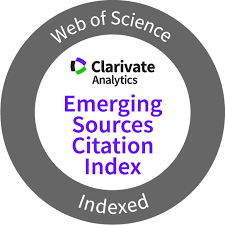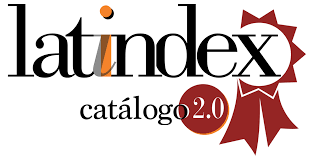Relaciones Públicas y asociacionismo académico en España: AIRP, la Asociación de Investigadores en Relaciones Públicas / Public Relations and academic associationism in Spain: AIRP, the Association of Researchers in Public Relations
DOI:
https://doi.org/10.5783/revrrpp.v10i20.682Keywords:
Relaciones Públicas, asociación, AIRP, investigación, universidad, España.Abstract
Resumen
El asociacionismo, práctica profesional y académica habitual en todos los campos, presenta en España diversas peculiaridades en el caso de las Relaciones Públicas, aquejadas desde sus inicios de una falta de reconocimiento e identificación como disciplina independiente. En el ámbito profesional esto deriva en la aparición de múltiples asociaciones que, con diferentes nombres y obviando en muchas ocasiones las palabras Relaciones Públicas, agrupan a los profesionales del sector, pero en el terreno de la investigación y la docencia universitarias no existe esa tradición asociativa. Con el objetivo de cubrir este vacío se funda en el año 2004 AIRP, la Asociación de Investigadores en Relaciones Públicas de España. Transcurridos 16 años desde su creación, el presente artículo analiza el sentido y utilidad de dicha asociación, tanto en el momento inicial como en la actualidad y hace balance de la evolución de las Relaciones Públicas en España a lo largo de esta década y media, en el ámbito profesional y, sobre todo, en el académico. Se propone pare ello una metodología basada en la entrevista semiestructurada con tres de los cuatro profesores fundadores de AIRP y un análisis de contenido de diversos documentos, como el censo y el portal web de la entidad. Entre los resultados obtenidos destaca el impulso académico que para las Relaciones Públicas ha supuesto el trabajo en red y asociativo de la mayoría de investigadores españoles en la materia, que antes de la existencia de AIRP trabajaban de modo independiente; un impulso que se traduce en un mayor reconocimiento científico de la profesión y en una mejora notable de los indicadores de producción científica asociados a la misma, con la consiguiente mayor promoción del profesorado especializado e incremento de la presencia de la disciplina en los planes de estudios; un hecho al que contribuirá la elaboración del Libro Blanco sobre el Ámbito de las Relaciones Públicas, reto más inmediato de AIRP.
Palabras clave: Relaciones Públicas, asociación, AIRP, investigación, universidad, España.
Abstract
Associationism, a habitual professional and academic practice in all fields, present in Spain various peculiarities in the case of Public Relations, suffering from a lack of recognition and identification as an independent discipline since its inception. In the professional field, this leads to the appearance of multiple associations that, with different names and many times obviating the words Public Relations, bring together professionals in the sector, but in the field of university research and teaching there is no such associative tradition. In order to fill this gap, AIRP, the Association of Researchers in Public Relations of Spain, was founded in 2004. 16 years after its creation, this article analyzes the meaning and usefulness of said association, both at the beginning and at present, and takes stock of the evolution of Public Relations in Spain throughout this decade and a half, in the professional field and, above all, the academic one. A methodology based on a semi-structured interview with three of the four AIRP founding professors and a content analysis of various documents, such as the census and the entity's web portal, is proposed for this. Among the results obtained, the academic impulse that the networking and associative work of the majority of Spanish researchers in the field has entailed for Public Relations, who before the existence of AIRP worked independently; a boost that translates into greater scientific recognition of the profession and a notable improvement in the indicators of scientific production associated with it, with the consequent greater presence of the discipline in the study plans and the promotion of specialized teachers. Therefore, the importance of associationism is also corroborated in the academic, non-professional sphere, especially in the case of disciplines, such as Public Relations in Spain, which needed an important work of dignity. A process to which the high level of Spanish PR researchers undoubtedly contributes, which has allowed many of them access to full professor and even professorial positions, something unthinkable a few years ago. In relation to the eternal debate on the correct translation into Spanish of the term Public Relations, the researchers are committed to maintaining the name Relaciones Públicas which, although in the professional field is elusive, in the academic field it remains, even in the name of the Degree study. Finally, in relation to the history and evolution of AIRP, the entity has notably increased the number of partners since its foundation, counting on a presence in the majority of universities that offer Advertising and Public Relations studies. This expansion, which will continue to be promoted, must be compatible, however, with its vocation as a specialized entity, absolutely focused on the study of Public Relations. The entity's most immediate challenge is the preparation of the White Paper on the Scope of Public Relations, a guide for the preparation of study plans on the subject.
Keywords: Public Relations, association, AIRP, investigation, university, Spain.
Downloads
References
ALMANSA-MARTÍNEZ, A. (2004). Historia de los gabinetes de comunicación en España. Historia y Comunicación Social, Vol. 9, 5-21. Recuperado el 15 de octubre de 2020, de https://revistas.ucm.es/index.php/HICS/article/view/HICS0404110005A
ALMANSA-MARTÍNEZ, A. y FERNÁNDEZ-SOUTO, A-B. (2020). Professional Public Relations (PR) trends and challenges. Profesional de la información, 29(3), 1-6. https://doi.org/10.3145/epi.2020.may.03
CASTILLO-ESPARCIA, A. y XIFRA, J. (2006). Investigación bibliométrica de las tesis doctorales españolas sobre relaciones públicas. Anàlisi. Quaderns de Comunicació i Cultura, 34, 141-161. Recuperado el 14 de diciembre de 2020, de https://ddd.uab.cat/record/15568
CASTILLO ESPARCIA, A. (2010). Introducción a las Relaciones Públicas. Málaga: Instituto de Investigación en Relaciones Públicas (IIRP). Recuperado el 15 de octubre de 2020, de https://www.uma.es/media/files/libropr_1.pdf
CASTILLO-ESPARCIA, A., CARRETÓN-BALLESTER, C. y PINEDA-MARTÍNEZ, P. (2020). Investigación en relaciones públicas en España. Profesional de la información, 29(3), 1-13. https://doi.org/10.3145/epi.2020.may.30
CUENCA-FONTBONA, J., MATILLA, K. y COMPTE-PUJOL, M. (2019). Análisis bibliométrico de la producción científica de las relaciones publicas a través de las tesis doctorales (2006-2017) y de los programas de doctorado españoles. Anàlisi. Quaderns de Comunicació i Cultura, 60, 97-117. https://doi.org/10.5565/rev/analisi.3166
CUENCA FONTBONA, J., MATILLA, K. y COMPTE PUJOL, M. (2020). Transformación digital de las agencias de relaciones públicas y comunicación españolas. Profesional de la Información, 29(3), 1-14. https://doi.org/10.3145/epi.2020.may.10
ESTANYOL CASALS, E. y LALUEZA BOSH, F. (2014). ¿Tamaño o flexibilidad? Estructura organizativa de las consultoras de relaciones públicas en España. Sphera Publica, núm. especial, 135-162. Recuperado el 15 de octubre de 2020, de http://sphera.ucam.edu/index.php/sphera-01/article/viewFile/205/173
MIQUEL-SEGARRA. S. (2016). Análisis de los profesionales de la comunicación corporativa desde el asociacionismo en España. En I. García Medina y M. Martín Llaguno (Coords.), Business, Economy and Society: Issues for Research in a Knowledge and Information Society (pp. 98-11). Alicante: Glasgow Caledonian University y Universidad de Alicante.
MOYA MORALES, M. C. (1999). Atracción y relaciones interpersonales. En Morales, J. F. Morales Domínguez y M. Olza Zubiri (Coords.), Psicología Social y trabajo social (pp. 323-348). Madrid: McGraw Hill.
PANIAGUA GALLART, C. (2012). Una historia de la comunicación de crisis en España. Revista Icono 14 Revista De Comunicación Audiovisual y Nuevas Tecnologías emergentes, 8(12), 3-24. https://doi.org/10.7195/ri14.v8i2.243
TOCQUEVILLE, A. (2018). La democracia en América. Madrid: Trotta Editorial.
Downloads
Published
How to Cite
Issue
Section
License
Authors publishing in this journal agree to the following terms:
a. Authors retain copyright and grant the journal the right to be the first publication of the work as licensed under a Creative Commons Attribution License that allows others to share the work with an acknowledgement of authorship of the work and initial publication in this journal.
b. Authors may separately enter into additional arrangements for non-exclusive distribution of the version of the work published in the journal (e.g., placing it in an institutional repository or publishing it in a book), with an acknowledgement of initial publication in this journal.
c. Authors are allowed and encouraged to disseminate their work electronically (e.g. in institutional repositories or on their own website) before and during the submission process, as it can lead to productive exchanges, as well as earlier and higher citation of published work (see The Effect of Open Access).




